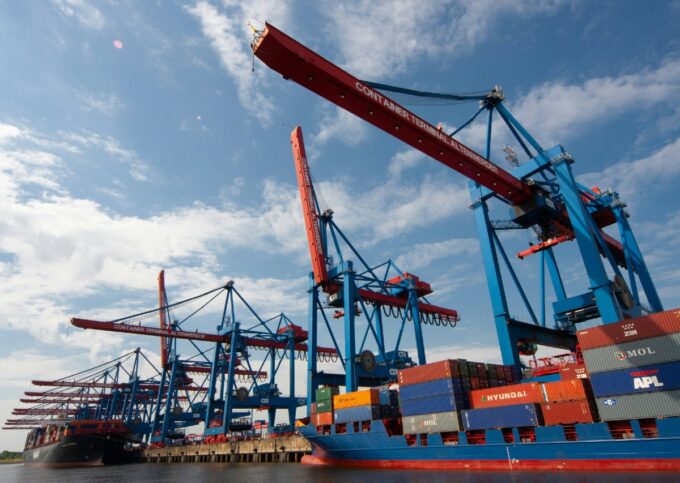
What are “antiboycott” regulations?
These regulations were adopted to encourage and require U.S. firms (in some cases) to refuse to participate in foreign boycotts that are not sanctioned by the U.S. This would be an “unsanctioned boycott.”
In addition, U.S. persons are also required to report boycott-related requests to both the Office of Antiboycott (OAC) at the U.S. Department of Commerce (DOC) as well as the Internal Revenue Service (IRS).
The most common unsanctioned boycott of the U.S. is the Arab League boycott of Israel.
What do these regulations prohibit?
The regulations prohibit U.S. firms from engaging in boycotts that are against U.S. foreign policy. This includes:
- Refusals or agreements to refuse to do business with or in a boycotted country or with blacklisted companies.
- Discrimination or agreements to discriminate against a U.S. person based on race, religion, sex, or national origin.
- Furnishing information or agreements to furnish information about business relationships with or in a boycotted country or with blacklisted companies.
- Furnishing information or agreements to furnish information about the race, religion, sex, or national origin of a U.S. person.
- Implementation of letters of credit containing prohibited boycott terms or conditions.
- Taking actions with the intent to evade Part 760 of the EAR.
Examples of boycott requests
It can be difficult to determine requests to participate in boycotts that are contrary to U.S. foreign policy. (This is one of the reasons why DOC requires U.S. companies to report these requests – so they can make them known to other firms to help ensure compliance.) Here are some examples of requests that, if agreed to, would violate the antiboycott regulations:
- “In the case of overseas suppliers, this order is placed subject to the suppliers being not on the Israel boycott list published by the central Arab League.”
- “Goods of Israeli origin not acceptable.”
- “Israeli Clause: The Seller shall not supply goods or materials which have been manufactured or processed in Israel nor shall the services of any Israeli organization be used in handling or transporting the goods or materials.”
- “The Contractor shall comply in all respects with the requirements of the laws of the State of Bahrain relating to the boycott of Israel. Goods manufactured by companies blacklisted by the Arab Boycott of Israel Office may not be imported into the State of Bahrain and must not be supplied against this Contract. For information concerning the Boycott List, the Contractor can approach the nearest Arab Consulate.”
Other red flags can include boycott-related questions as part of your company’s supply chain processes, new vendor onboarding or other quality systems processes:
- Do you have or ever have had a branch or main company, factory or assembly plant in Israel or have sold to an Israeli?
- Do you have or ever have had general agencies or offices in Israel for your Middle Eastern or international operations?
- Do you participate or ever participated or owned shares in an Israeli firm or business?
- Do you render now or ever have rendered any consultative service or technical assistance to any Israeli firm or business?
- Do you represent now or ever have represented any Israeli firm or business or abroad?
Recent enforcement actions
In the last year, the OAC and the Department of Justice (DOJ) have stepped up enforcement efforts of these regulations. Most recently, the DOC imposed a civil penalty of $44,750 against Forta LLC, a Pennsylvania manufacturer of synthetic reinforcement fibers, for three (3) violations of the antiboycott regulations.
Specifically, Forta furnished information about business relationships with boycotted countries and failed to report the request.
This request stemmed from a trade show where Forta certified the goods were not of Israeli origin and not manufactured by a company identified on the “Israel Boycott Blacklist.”
In addition, the DOC imposed a civil penalty against Pratt & Whitney Component Solutions for $48,750 for 13 violations of these regulations stemming from a request they received from Qatar Airways to refrain from importing Israeli-goods in fulfilling any orders.
How do you comply?
It’s important for U.S. companies to develop and implement a system for compliance to these regulations. Here are some steps to follow:
- Provide specific training to all levels of employees concerning antiboycott compliance. This should include senior sales and supply chain individuals as well as customer service, shipping & receiving personnel, etc.
- Enact screening procedures to ensure that all sales are reviewed for antiboycott related requests. Any reviews must include the purchase order, contracts, request for quotations, as well as any other discussions or terms/conditions being agreed to as part of the sale.
- Develop an escalation process for reporting any such requests or questions internally.
- Work with internal senior leadership to report any requests as well as filing any necessary voluntary disclosure.
Need help? Our team of trade compliance experts is available to assist you with antiboycott compliance. Schedule a no-charge consultation today.
Rebecca Yeager is a Trade Compliance Consultant for Export Solutions -- a full-service consulting firm that specializes in helping companies comply with U.S. and international import/export regulations.
